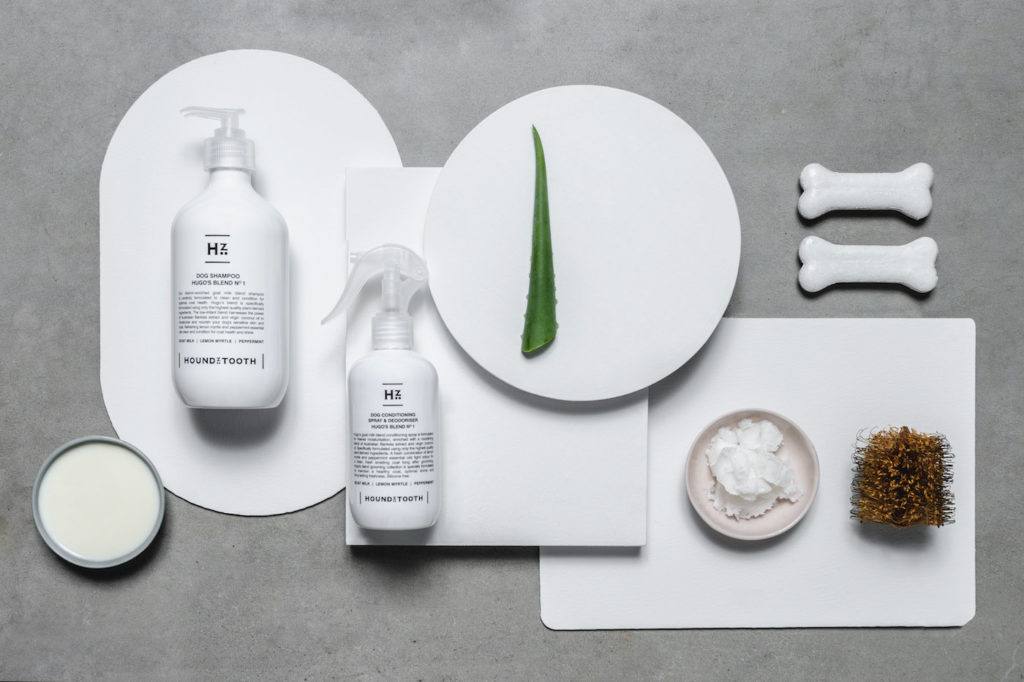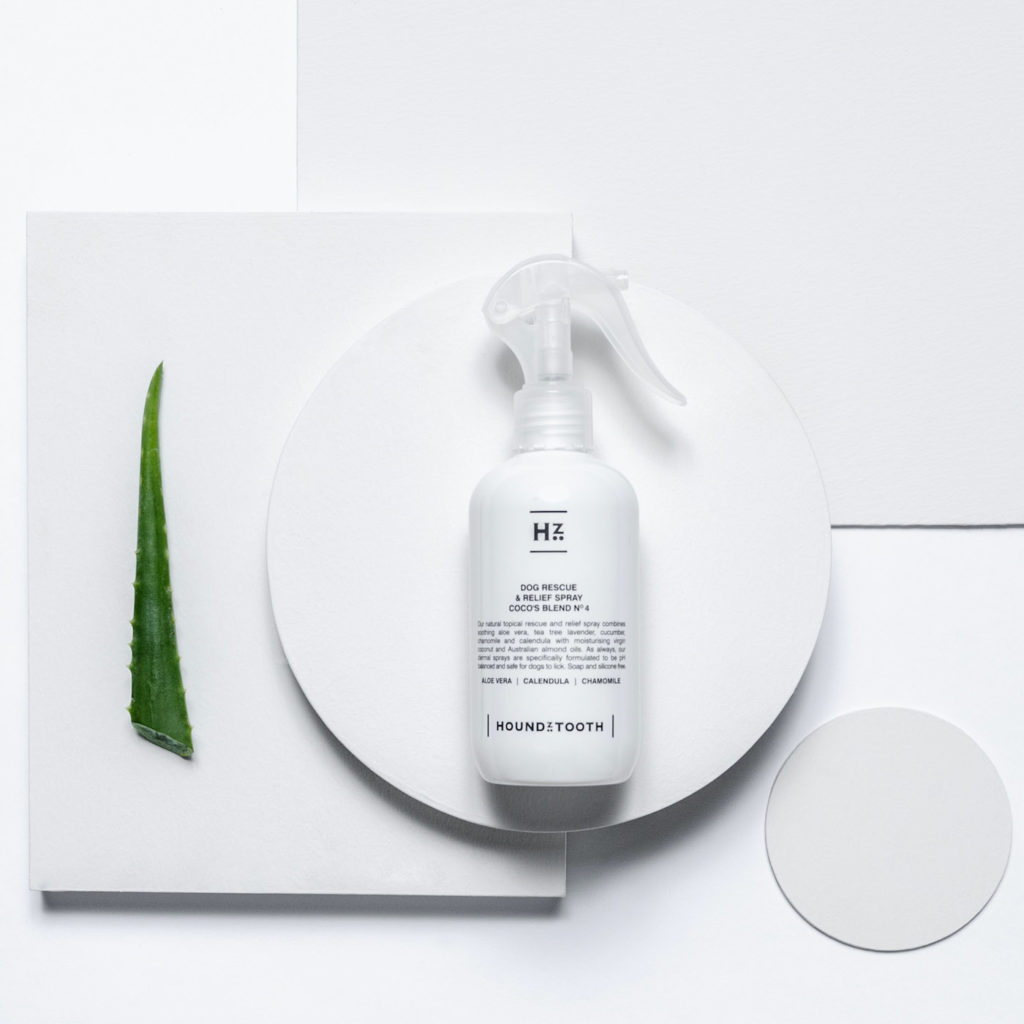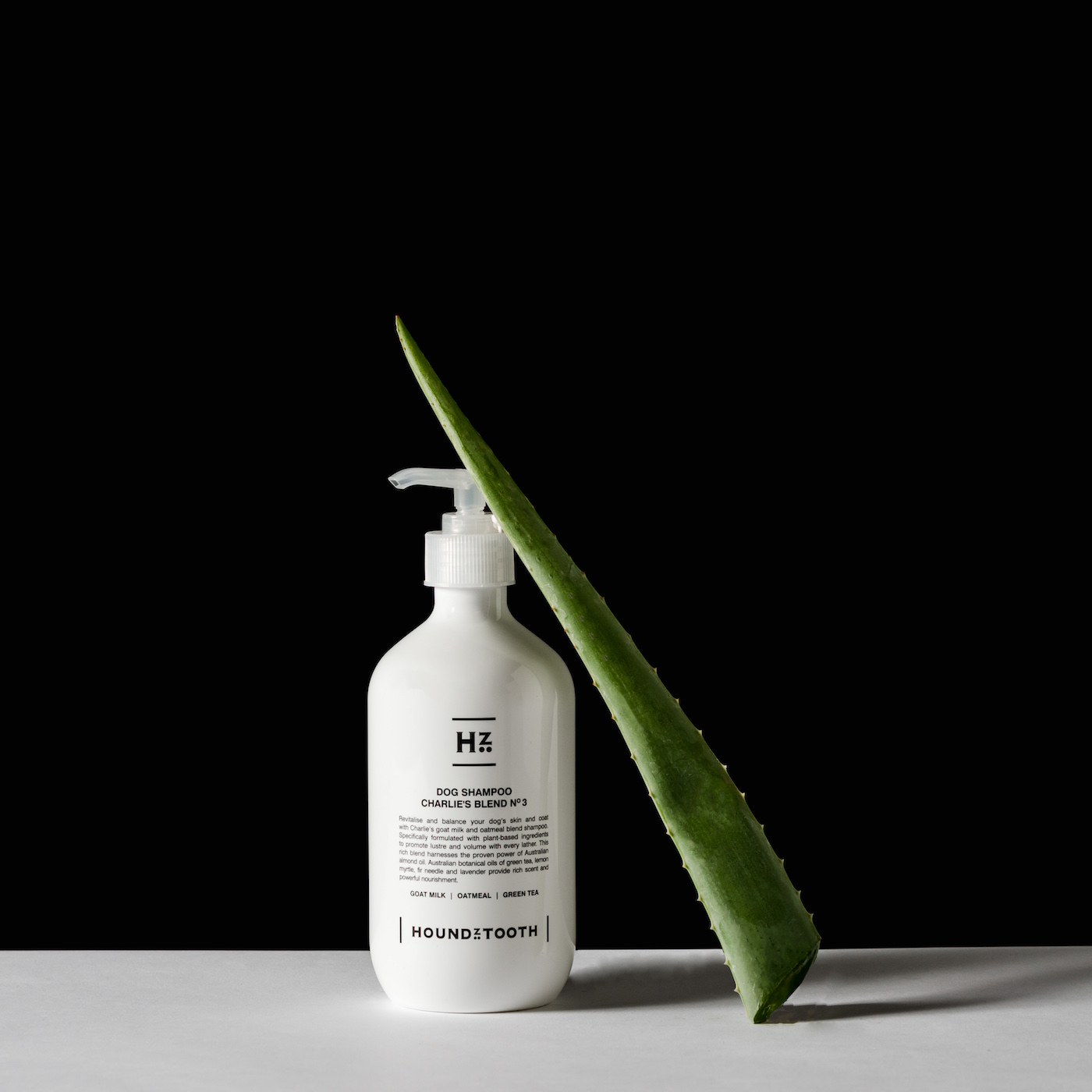Aloe Vera vs Water-Based Shampoo
What is the difference between aloe vera and water-based shampoo?
Water-based shampoo is likely just what you think it is – a shampoo with water as the main ingredient. By the same notion, aloe vera-based shampoo is one where the main ingredient is aloe vera leaf juice.
Aloe vera leaf juice is not often used by manufacturers because water is a much cheaper alternative. At Houndztooth, we understand the healing and hydrating properties that aloe vera leaf juice contains, which is why we use it – rather than water – in all of our shampoos and conditioning sprays.
We are proud that our grooming range is one of the only ones on the market using aloe vera leaf juice instead of water.
Understanding the ‘ingredients’ list
By law, the ingredients must be listed from highest to lowest quantity in all Australian cosmetic and soap products. This means that the first ingredient displayed is the main ingredient – the one that makes up the highest percentage or volume of the product.
In Australia, it is not required within the pet industry for ingredients to be listed on the product itself. However, pet industry ingredient lists still read the same way and for Houndztooth, you will see that all of our grooming products have aloe vera leaf juice listed first.
While our ingredients aren’t displayed on the bottle, you can view the full list of ingredients in each Houndztooth product on our website. We believe that through our grooming products, aloe vera has the power to improve the overall health and wellbeing of our pets.

Aloe vera is packed full of soothing properties
Aloe vera has been used in traditional Chinese and Egyptian medicine for thousands of years to treat burns and other ailments.
Modern science is now proving what those ancient cultures knew all along: that aloe vera is a plant with some pretty incredible healing properties.
Reduces inflammation
Aloe vera is filled with vitamins and minerals that give the plant its anti-inflammatory, antibacterial and antifungal properties. It contains vitamins A and E, as well as the compound bradykinin, all of which work hard to fight and reduce inflammation.
Combined with our unique goat milk ingredient, our aloe vera-based shampoo and conditioning sprays provide the perfect topical for pets with sensitive and inflamed skin.
Soothes irritation
Because of aloe vera’s cooling effect, it is often used as a treatment for relieving itchy and irritated skin. If your pup has an allergy that results in a rash, aloe vera may help to soothe their prickling skin.

Aloe vera is one of the key ingredients in our Coco’s Blend No.4 Rescue & Relief Spray For Itchy Skin. After spraying it on the affected area, Coco’s Blend No.4 will help to cool and soothe your dog’s skin irritation.
Hydrates dry skin
Aloe vera’s nourishing properties don’t just work on irritated and inflamed skin! The enzymes in the plant also work to remove dead skin cells and prevent dandruff. They promote healthy hair growth so your pup’s coat can maintain its volume and lustre.
Gentle on sensitive skin
When you put it all together, it makes sense that aloe vera, with all of it’s soothing properties, is perfect for sensitive skin. Even if your furry friend is already in perfect health, using an aloe vera-based shampoo will help to keep them moisturised and clean behind the scenes and under their fur.
Harness the power of aloe
Aloe vera is loaded with healing and cleansing properties that can benefit your pooch in so many ways. Whether you apply it as a topical or use an aloe vera-based shampoo (like your favourite Houndztooth product), you can rest assured knowing that this is a plant working hard to keep your dog’s skin happy, healthy and hydrated.

